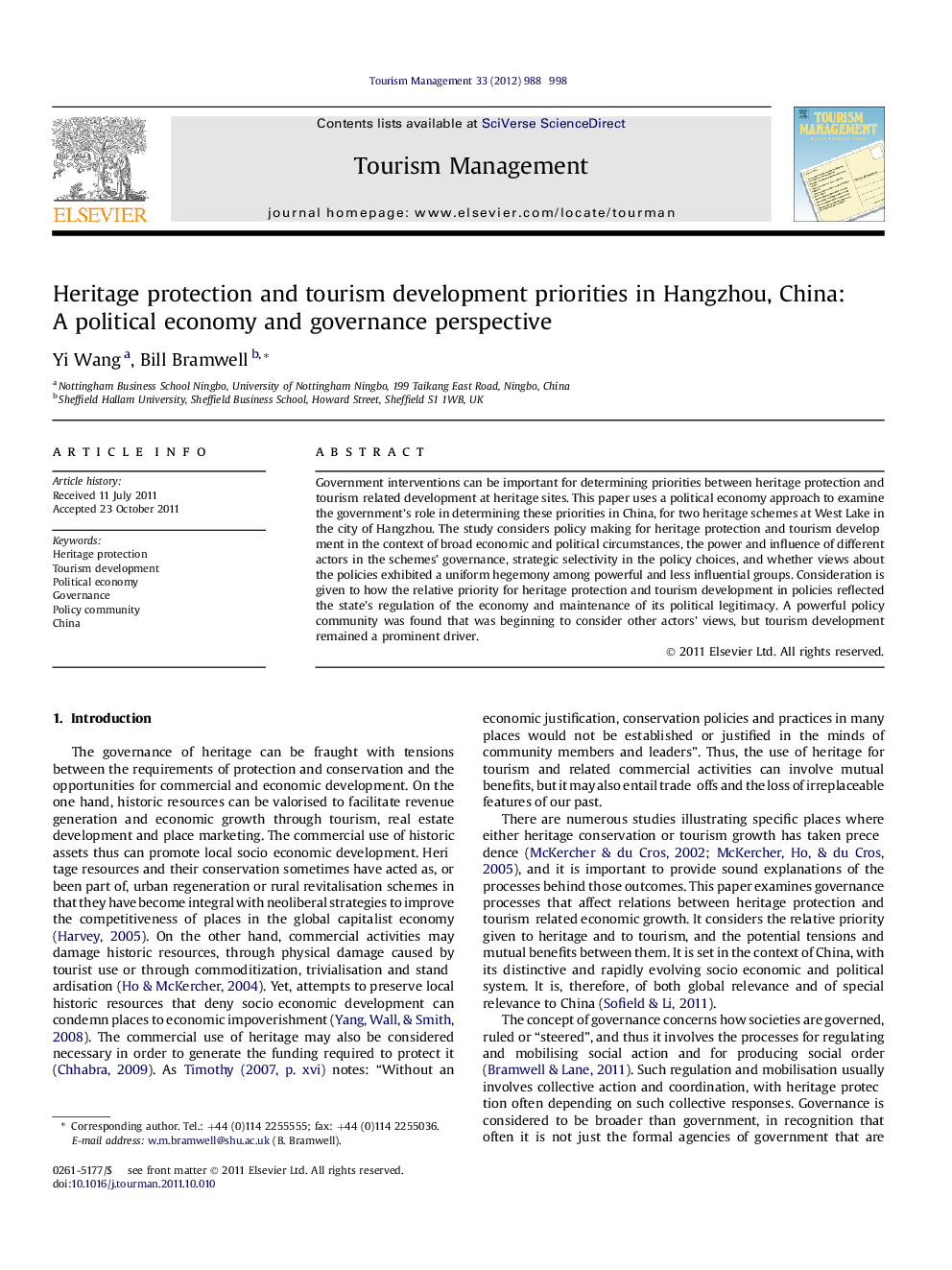| Article ID | Journal | Published Year | Pages | File Type |
|---|---|---|---|---|
| 1012226 | Tourism Management | 2012 | 11 Pages |
Government interventions can be important for determining priorities between heritage protection and tourism-related development at heritage sites. This paper uses a political economy approach to examine the government’s role in determining these priorities in China, for two heritage schemes at West Lake in the city of Hangzhou. The study considers policy making for heritage protection and tourism development in the context of broad economic and political circumstances, the power and influence of different actors in the schemes’ governance, strategic selectivity in the policy choices, and whether views about the policies exhibited a uniform hegemony among powerful and less influential groups. Consideration is given to how the relative priority for heritage protection and tourism development in policies reflected the state’s regulation of the economy and maintenance of its political legitimacy. A powerful policy community was found that was beginning to consider other actors’ views, but tourism development remained a prominent driver.
►Political economy aided understanding the protection and development priorities. ►Economic ambitions influenced the prominence given to tourism development. ►Heritage and tourism decisions were made by only a few actors. ►Oppositional views emerged around the priorities for protection and development. ►Priorities were adjusted to the threats to heritage and the state’s legitimacy.
